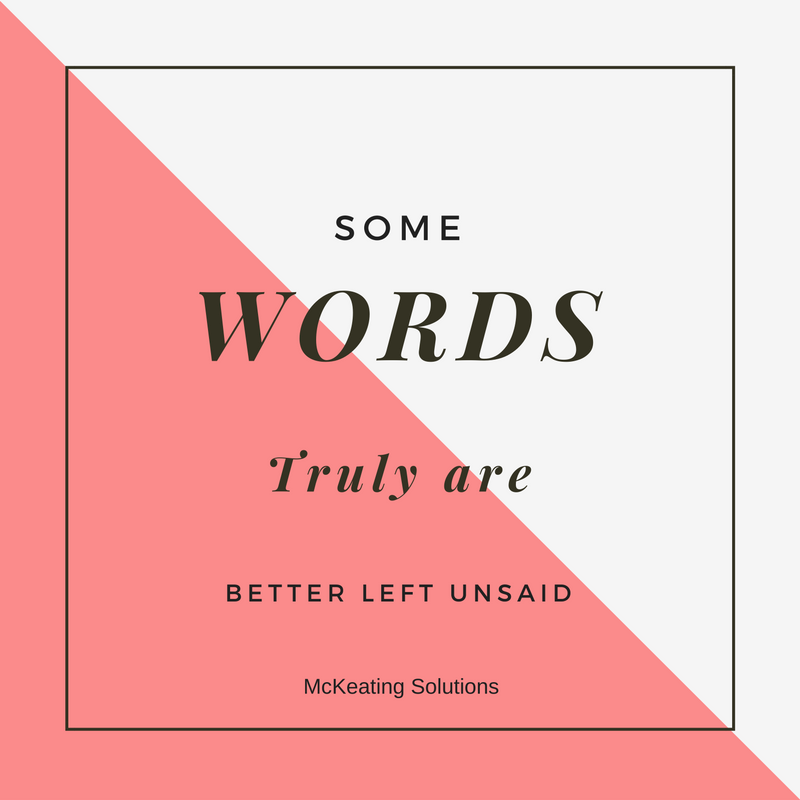There Truly Are Words Better Left Unsaid, And Doing So Will Teach You More About Your Own Speach

Some Words Truly are Better Left Unsaid
Can make you both more meaningful and mindful.
Recently, I had the pleasure of reading a Buffer article written by Carolyn Kopprasch. In this article, she explained that Buffer did some research and determined that there are in fact words that are better left unsaid. Carolyn explained one of her favorite “happiness hacks”, telling readers that it is as simple as cutting words like “actually” and “but” out of your vocabulary…and by extension, your work emails.
Buffer rightly dubs these pesky little words that can convey a meaning you never remotely intended, as detractors. They detract from the meaning that you are trying to convey. Or, in other words, they distract and confuse your readers. I’ve bought into this research and have begun cutting these words out of my vocabulary. It’s made me realize just how ingrained these two little words can become. We start using them and all of a sudden they are entrenched. So now that I’ve started to dig these words out and give them the boot, I’ve started to notice one other major side effect. Of course in cutting these words out, I am better able to communicate or at least communicate more accurately. But I’ve also become more mindful, because to cut them out, you have to pay attention and spot when you are using them.
“Actually” and “But”
It’s almost like the word “actually” has actually become the unofficial start to any sentence that comes out of a mean girls mouth. As Carolyn explains, anything that comes after actually, no matter how nice or positive, is likely to be construed as negative. That’s not a feeling you want to convey. Sometimes I think that words like “actually” become a crutch, buying us time to formulate a thought when really it’s better left unsaid. I’m not sure where this need to fill the void, or the quiet spaces that naturally occur in conversation originated, but they’re like the fairies, the troublemakers or tricksters of conversation.
“But” can be just as bad in that it’s not a nice thing to hear. “But” signals a let down, and makes whatever follows it even less pleasant to hear. It’s become apparent that we speak and write very differently, or at least we used to. Now the way we speak has bled into the way that we write. We tend to speak in more run-on type sentences. When we are writing an email or a blog post, those sentences don’t translate as well. “But” has become a common link or filler and all it is, is fluff. No one likes fluff. They like substance. So getting rid of the word but, often by simply breaking down your longer sentences into smaller ones, can help dramatically.
You can check out the full article and see her examples for yourself to get a better picture.
Other Gleanings
Now that I’ve been paying more attention to what I say, I’ve also been listening to how I say it. And I’ve learned that some bad habits have come creeping back. I’ve realized that I’ve started using the word “like” as a filler even though I had kicked that habit years ago. I’ve also noticed that I’ve fallen into an easy pattern using just a few adjectives rather than all of the wonderful words that are at my fingertips. Language is a broad and beautiful art that has as many words as a painter can form colors with his or her brush. Many of us are guilty of using “awesome” and “incredible” dulling their meaning overtime.
Take the word “awesome” which means full of awe, or extremely impressive and inspiring great admiration. Think about the last thing to which you said “awesome” in response…was it really extremely impressive or did it inspire great fear or admiration? Chances are, it didn’t.
Lastly, I’ve also noted, and I’m sad to admit it, my own misuse of grammar. It’s a Pittsburgh habit to end sentences with prepositions but when I hear it, it’s like nails on a chalk board to me. I haven’t completely fallen from grace though, at least I haven’t started using double negatives yet.
Now that Carolyn and I have kickstarted your brain and got you thinking about your vernacular, are there any other words that you can think of that are better left unsaid? Are there words with which you have fallen into repetition? Or is there a grammatical rule that you often forget? Taking stock of these things every so often can make you a better communicator. When you are a better communicator, your whole life improves.
